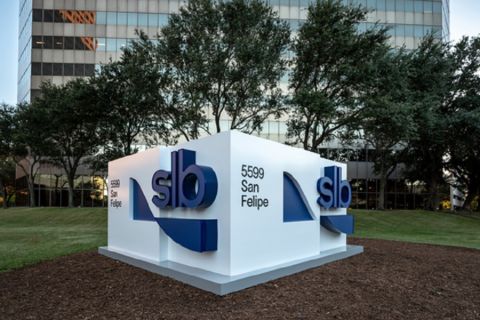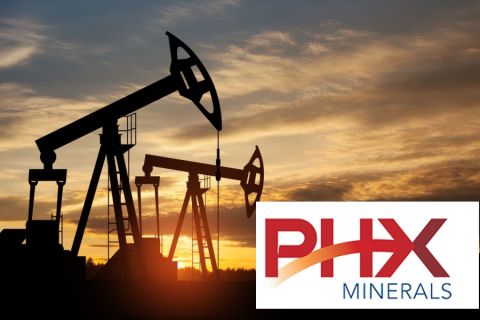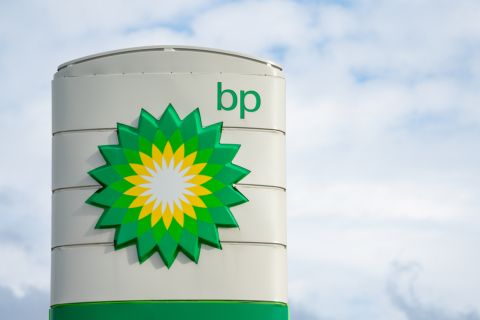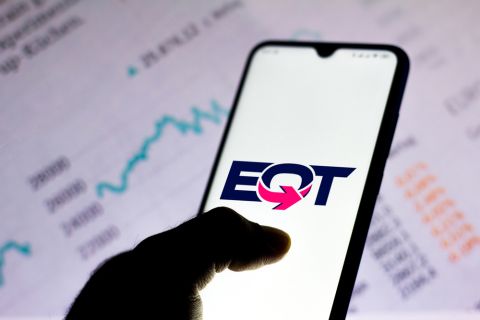Malaysia undeniably enjoys the greatest hydrocarbon resources-some 4.5 billion barrels of oil and nearly 90 trillion cubic feet (Tcf) of gas-in measurement against those of Thailand, Singapore and Brunei. The government plays a pivotal role in the exploitation of these resources through the national oil company, Petronas, which was bequeathed ownership off all the country's hydrocarbon resources through the Petroleum Development Act of 1974. Any company wishing to exploit Malaysia's resources must do so in partnership with Petronas, normally through a production-sharing contract (PSC). Shell and ExxonMobil have for a long time largely dominated production, though recent years have seen a considerable number of new entrants join the foray and more than 60 PSCs have been signed to date. The scale of production and the success of these PSCs have allowed Petronas to evolve from its indigenous beginnings into a world-class player, with operations as far as Sudan and Equatorial Guinea. Despite the fact that the only major discoveries of oil still likely are to be found in deep water, such as that in the Kikeh Field announced in 2003 by Murphy Oil, Petronas remains confident that $16 billion of new investment will be forthcoming during the next five years in both upstream and downstream developments. Petronas (through its operating arm, Petronas Carigali), Exxon and Shell dominate the E&P sector. Malaysia's oil production has been relatively stable in recent years, fluctuating between 650,000 barrels per day and 730,000 between 1996 and mid-2003. In 2002, daily production averaged 675,973 barrels. That figure has risen to 693,781 for the first nine months of 2003 to which another 90,000 barrels per day of condensate output can be added. There are four principal areas of activity: offshore Peninsular Malaysia, offshore Sarawak, offshore Sabah on the northwest side of Kalimantan Island, and in the Malaysia-Thailand Joint Development Area (MTJDA) in the Gulf of Thailand. ExxonMobil Exploration & Production Malaysia Inc. (EMEPMI) is by far the largest oil producer in Malaysia and supplies two-thirds of Peninsular Malaysia's natural gas output-at 1.3 billion cubic feet per day-and 44% of its oil production-approximately 280,000 barrels per day. EMEPMI operates seven fields near the peninsula, and one-third of its production comes from the Seligi Field off the coast of Terengganu. The company has also begun production from Larut Field, which is expected to yield 140,000 barrels per day, going a long way in postponing inevitable declines in the company's production. In February 2003, EMEPMI began the first gas production from Bintang Field, 220 kilometers offshore Terengganu, on the east coast of Peninsular Malaysia. It is expected to produce about 1 Tcf of gas with a peak production rate of 355 million cubic feet per day. Gas from the two Bintang platforms-A and B-will flow via 11 kilometers of new pipelines to Lawit A for processing, and then to shore via existing pipelines. Bintang is the second field to be developed under a gas PSC, a 50-50 joint venture of ExxonMobil, operator, and Petronas Carigali. Most of Shell's operations are off the coast of East Malaysia (Sarawak and Sabah on the island of Borneo). The company has more than a century of history in the country, beginning when it first traded at local ports in the early 1890s. Shell's key operations are focused in three main sectors: exploration and production; oil products, which comprises manufacturing, marketing and distribution; and gas. Shell's current Malaysian oil and liquids production is approximately 228,000 barrels per day and gas production is approximately 426,000 barrels of oil equivalent per day. The company invested about $265 million in oil and gas E&P projects in 2002. Shell will focus its efforts on continued exploration drilling in deepwater blocks E and G, offshore Sarawak and Sabah, respectively and plans to drill additional production wells at its South Furious Field, where it has so far located reserves of 5- to 6 Tcf of gas. The company hired Houston-based Atwood Oceanics Inc. to drill five shallow-water wells with an option to drill five additional wells. Throughout its tenure in Malaysia, Shell has pioneered advances in local extraction and export methods. One notable achievement is the introduction of the single-buoy mooring (SBM) system in 1960. The SBM system, which eliminates the need for deepwater harbor facilities, was later adapted and used throughout the world. Shell is also a shareholder in Malaysia's three liquefied natural gas (LNG) plants in Bintulu, Sarawak: MLNG (onstream in 1993), MLNG-2 (onstream in 1995) and MLNG-3 (onstream in 2003). Despite the dominance of Petronas, Exxon and Shell, several other operators are involved in Malaysia. Three new operators-Amerada Hess, Talisman and Murphy Oil-entered the market in 1998 by signing PSCs. This was the goal of Petronas when, in the mid-1990s, it devised a flexible PSC, to attract more investors to smaller fields. The firm also loosened terms for all PSCs in 1997. In January 1999, Murphy Oil signed three PSCs as an operator. Brunei Brunei also enjoys considerable hydrocarbon assets. As of July 2003, proven reserves are estimated at 1.35 billion barrels of oil and 14 Tcf of gas. Production of oil is deliberately maintained at around 210,000 barrels per day, in an effort to extend the life of the fields and improve recovery rates. Production of gas was about 340 billion cubic feet (Bcf) in 2001. There are four fields onshore Brunei and seven offshore. The giant onshore Seria Field, where the country's first discovery was made in 1929, produced its millionth barrel in 1991. Some 90% of the country's hydrocarbons, however, are found in just two fields: Champion, which accounts for approximately 40% of known reserves, and South West Ampa, which holds roughly half of Brunei's reserves. Both of these fields are offshore, at depths of about 30 meters. The remaining 10% is divided between five offshore fields, the most significant of which is Magpie, producing 10,000 barrels per day. Brunei Shell Petroleum (BSP), a 50-50 joint venture of Brunei and Shell, has traditionally been the country's sole operator and producer. BSP also owns and operates the country's sole refinery, and supplies Brunei Liquefied Natural Gas (BLNG), itself a joint venture of Shell, Mitsubishi and Brunei. Furthermore, BSP also ships LNG through another joint venture, Brunei Shell Tankers. Export markets include Japan, which consumes 90% of Brunei's production, and South Korea. Brunei is the world's fourth-largest exporter of LNG. Mark Carne, BSP managing director, sees "the relationship extending long into the future." Thailand Thailand's resources are comparatively more modest. Proven oil reserves are around 551.5 million barrels of oil, with production reaching more than 193,000 barrels per day in 2002. Natural gas reserves are estimated at around 13.3 Tcf. The majority of these resources are offshore, in the Gulf of Thailand. Out of 37 producing fields comprising 43 blocks, 21 fields are offshore (26 blocks) and 16 are onshore (17 blocks). These fields are divided into 33 concessions among several operators, including Unocal, Chevron, Amerada Hess and the E&P arm of Thailand's national oil company, PTT. Pending new discoveries, most reserves are held in three fields: Pailin, Arthit and Bongkot. Unocal operates the first of these, while PTT E&P is the operator of the other two. The oil and gas industry in Thailand is dominated by state-owned PTT. This relatively young company, which celebrated its 25th anniversary in 2003, has grown from humble beginnings into Thailand's most valuable company. PTT has acquired a good reputation for sound business practices and solid management. Though it remains focused on the domestic market, PTT has a growing international presence through PTT E&P. Thailand produces only about 20% of its energy requirements, which makes it crucially dependent on oil imports from neighboring Malaysia, and more recently, from Myanmar, which has been exporting some natural gas. Khun Prasert, president of PTT Thailand, says, "PTT is in healthy shape. We are Thailand's largest company by market capitalization. We do things on a different scale than Petronas, but we have managed to be very successful. We have excellent relationships with other operators. We welcome partnerships and invite international companies to participate in the development in the Thai market. "We expect the economic growth to remain buoyant, so the idea is to focus on our domestic market by using natural gas to power electricity demand. We may then use some of the profits to expand abroad, but for the time being we remain extremely focused on our domestic market. "Thailand has many strategic assets. Our economy is strong, our people are skilled, and our government is strongly committed to strategic energy-related ventures." The company's international expansion is done through PTT E&P. "Oman is one of our exciting new ventures, and we are currently in discussions with the Algerian government for some work on their LNG fields. We also have agreements with Myanmar and Malaysia."
Recommended Reading
SLB’s ChampionX Acquisition Key to Production Recovery Market
2024-04-19 - During a quarterly earnings call, SLB CEO Olivier Le Peuch highlighted the production recovery market as a key part of the company’s growth strategy.
PHX Minerals’ Borrowing Base Reaffirmed
2024-04-19 - PHX Minerals said the company’s credit facility was extended through Sept. 1, 2028.
BP Restructures, Reduces Executive Team to 10
2024-04-18 - BP said the organizational changes will reduce duplication and reporting line complexity.
Matador Resources Announces Quarterly Cash Dividend
2024-04-18 - Matador Resources’ dividend is payable on June 7 to shareholders of record by May 17.
EQT Declares Quarterly Dividend
2024-04-18 - EQT Corp.’s dividend is payable June 1 to shareholders of record by May 8.





